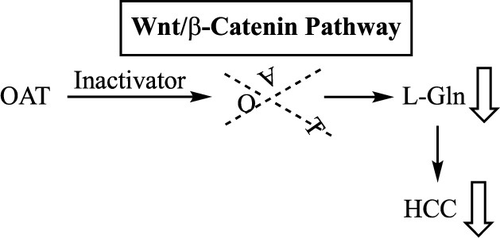当前位置:
X-MOL 学术
›
ACS Med. Chem. Lett.
›
论文详情
Our official English website, www.x-mol.net, welcomes your
feedback! (Note: you will need to create a separate account there.)
Inactivators of Ornithine Aminotransferase for the Treatment of Hepatocellular Carcinoma
ACS Medicinal Chemistry Letters ( IF 3.5 ) Pub Date : 2021-12-09 , DOI: 10.1021/acsmedchemlett.1c00526 Richard B Silverman 1, 2
ACS Medicinal Chemistry Letters ( IF 3.5 ) Pub Date : 2021-12-09 , DOI: 10.1021/acsmedchemlett.1c00526 Richard B Silverman 1, 2
Affiliation

|
Hepatocellular carcinoma (HCC) is the second or third leading cause of cancer mortality worldwide (depending on which statistics are used), yet there is no effective treatment. Currently, there are nine FDA-approved drugs for HCC, five monoclonal antibodies and four tyrosine kinase inhibitors. Ornithine aminotransferase (OAT) has been validated as a target in preclinical studies, which demonstrates that it is a potential target to treat HCC. Currently, there are no OAT inactivators in clinical trials for HCC. This Innovation describes evidence to support inhibition of OAT as a novel approach for HCC tumor growth inhibition. After the mechanism of OAT is discussed, the origins of our involvement in OAT inactivation, based on our previous work on mechanism-based inactivation of GABA-AT, are described. Once it was demonstrated that OAT inactivation does lead to HCC tumor growth inhibition, new selective OAT inactivators were designed and their inactivation mechanisms were elucidated. A summary of these mechanistic studies is presented. Inactivators of OAT provide the potential for treatment of HCC, targeting the Wnt/β-catenin pathway.
中文翻译:

鸟氨酸氨基转移酶灭活剂治疗肝细胞癌
肝细胞癌 (HCC) 是全球癌症死亡率的第二或第三大原因(取决于使用的统计数据),但目前尚无有效的治疗方法。目前,有九种 FDA 批准的 HCC 药物,五种单克隆抗体和四种酪氨酸激酶抑制剂。鸟氨酸氨基转移酶 (OAT) 已在临床前研究中被验证为靶点,这表明它是治疗 HCC 的潜在靶点。目前,在 HCC 的临床试验中没有 OAT 灭活剂。该创新描述了支持抑制 OAT 作为抑制 HCC 肿瘤生长的新方法的证据。在讨论了 OAT 的机制之后,基于我们之前关于基于机制的 GABA-AT 失活的工作,描述了我们参与 OAT 失活的起源。一旦证明 OAT 灭活确实导致 HCC 肿瘤生长抑制,就设计了新的选择性 OAT 灭活剂并阐明了它们的灭活机制。对这些机理研究进行了总结。OAT 的灭活剂提供了治疗 HCC 的潜力,靶向 Wnt/β-catenin 通路。
更新日期:2022-01-13
中文翻译:

鸟氨酸氨基转移酶灭活剂治疗肝细胞癌
肝细胞癌 (HCC) 是全球癌症死亡率的第二或第三大原因(取决于使用的统计数据),但目前尚无有效的治疗方法。目前,有九种 FDA 批准的 HCC 药物,五种单克隆抗体和四种酪氨酸激酶抑制剂。鸟氨酸氨基转移酶 (OAT) 已在临床前研究中被验证为靶点,这表明它是治疗 HCC 的潜在靶点。目前,在 HCC 的临床试验中没有 OAT 灭活剂。该创新描述了支持抑制 OAT 作为抑制 HCC 肿瘤生长的新方法的证据。在讨论了 OAT 的机制之后,基于我们之前关于基于机制的 GABA-AT 失活的工作,描述了我们参与 OAT 失活的起源。一旦证明 OAT 灭活确实导致 HCC 肿瘤生长抑制,就设计了新的选择性 OAT 灭活剂并阐明了它们的灭活机制。对这些机理研究进行了总结。OAT 的灭活剂提供了治疗 HCC 的潜力,靶向 Wnt/β-catenin 通路。































 京公网安备 11010802027423号
京公网安备 11010802027423号